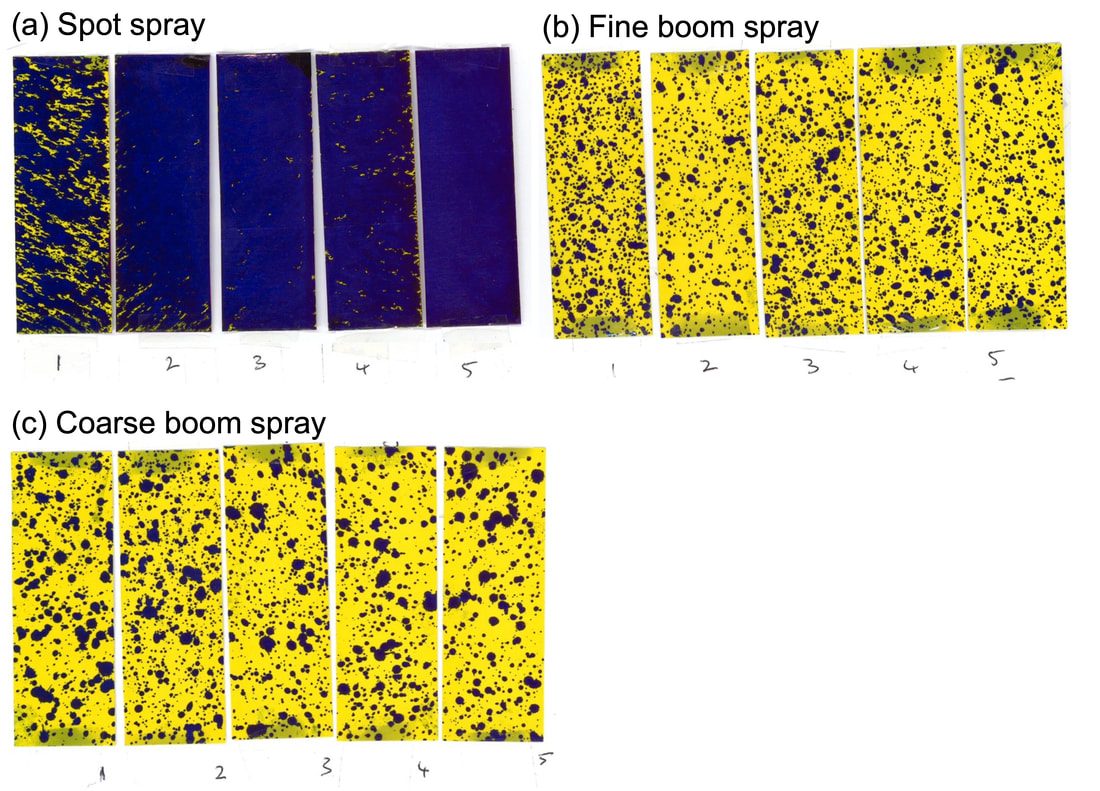May 2023: As much as we'd like to avoid it, herbicide is sometimes a necessary part of restoration, to reduce the occurrence of potentially damaging invasive plants.
Our new paper showed however, that herbicide can have negative impacts on native plant species. Spot spraying is usually recommended over boom spraying to minimise the exposure of nontarget species to chemicals. Contrary to this widespread belief, we found that spot spraying had a higher surface coverage and caused more negative impacts on native plants than boom spraying.
Our new paper showed however, that herbicide can have negative impacts on native plant species. Spot spraying is usually recommended over boom spraying to minimise the exposure of nontarget species to chemicals. Contrary to this widespread belief, we found that spot spraying had a higher surface coverage and caused more negative impacts on native plants than boom spraying.
These findings led us to develop a decision tree, which can be used by conservation managers to optimise herbicide application under different grassland conditions.
This was a collaboration with Dr Richard Milner and associates from Australian Capital Territory Government, with assistance by my UQ Research Assistant Raagini Kanjithanda.
Smith, A.L., Kanjithanda, R.M., Hayashi, T., French, J. and Milner, R.N.C. (2023), Reducing herbicide input and optimising spray method can minimise non-target impacts on native grassland plant species. Ecological Applications, e2864. DOI: https://doi.org/10.1002/eap.2864
This was a collaboration with Dr Richard Milner and associates from Australian Capital Territory Government, with assistance by my UQ Research Assistant Raagini Kanjithanda.
Smith, A.L., Kanjithanda, R.M., Hayashi, T., French, J. and Milner, R.N.C. (2023), Reducing herbicide input and optimising spray method can minimise non-target impacts on native grassland plant species. Ecological Applications, e2864. DOI: https://doi.org/10.1002/eap.2864
